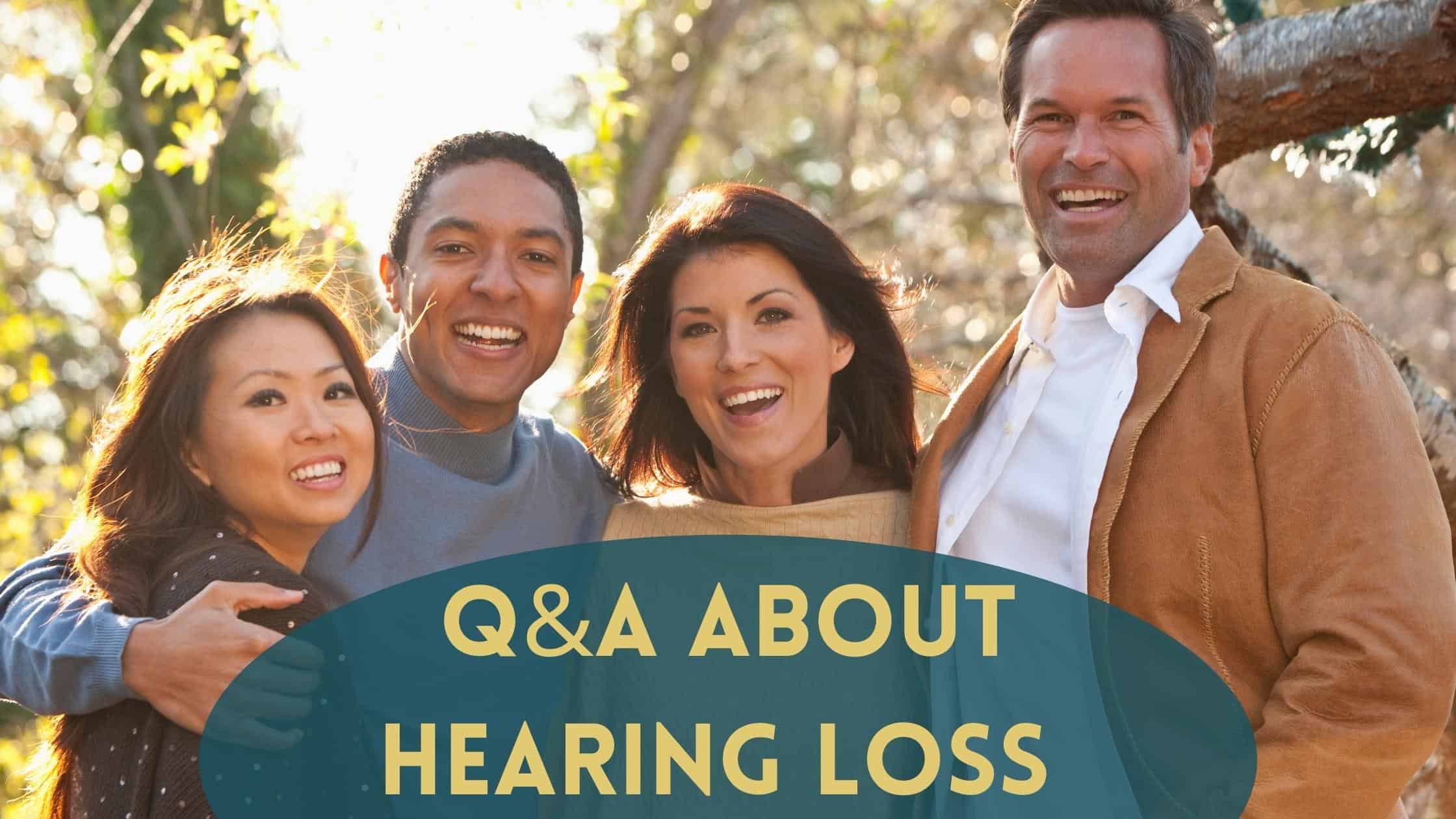We all know there are “no stupid questions” – especially when it comes to our health. To ease some of your fears or reservations about scheduling a hearing exam or learning about hearing aids, we’ve decided to feature five common questions about hearing loss or hearing aids that you may have always wondered but been too afraid to ask.
Are there any natural remedies to cure hearing loss?
As much as we wish we could answer “yes” to this question, the truth is that no, as of now, there are no natural remedies to cure or help hearing loss. Some scientific advancements have been made towards regenerating ear hair cells. However, we are still years, if not decades, away from achieving this goal. Once the delicate hair cells used to hear are damaged, there is no way to repair them.
There are only natural ways to protect the hearing you still have. One easy way to do this is to always wear ear protection when engaging in noisy activities, such as attending concerts, mowing the lawn, or shooting. There is also research that supports regular exercise and a healthy diet to protect one’s remaining hearing. While these strategies are great, there are still no natural remedies to recover hearing once it has been lost.
If I don’t treat my hearing loss and keep getting worse, will I one day become completely deaf?
The short answer to this question is “probably not.” While most hearing loss types are progressive and do get worse over time, most people will hit a hearing plateau, where their hearing loss remains steady at a certain point.
It is important to note that your brain’s auditory system can atrophy just like much else in life. As the saying goes, “if you don’t use it, you lose it.” Multiple studies conclude that untreated hearing loss in older adults is a factor in the risk of dementia. Only a qualified hearing professional can complete the proper assessments needed to determine your specific type and severity of hearing loss.
Is it better to get a cochlear implant instead of a hearing aid?
Cochlear implants should only be considered as a last case scenario. They are most often used for children who are born with no or very little hearing ability. Adults can be candidates for cochlear implants if they have already tried hearing aids and have not had success or have virtually no hearing ability left.
While it is an option, it is essential to remember that cochlear implants involve an invasive surgery that involves cutting into the skull and placing electrodes inside the tiny inner ear organ called the cochlea. Hearing aids are still the best and safest remedy for hearing loss – no anesthesia, scalpel, or surgery of any kind needed!
Do I really need two hearing aids?
There is a reason we have two ears, and this is because our brain uses information from each ear to process the sounds we hear. This information helps us understand the noises around us and where they are coming from.
For most people, hearing loss is bilateral – meaning there has been a loss of hearing abilities in both ears. With hearing aids in both ears, your brain is given all the information it needs (from both ears) to hear correctly.
When your brain is not straining to hear and understand, you have more energy to enjoy life. Because of this, if a hearing professional recommends treating your hearing loss with two hearing aids, it’s best to go ahead and invest in both aids (and, therefore yourself)!
Can’t I just buy a hearing aid online instead of going through a hearing professional?
Many people take a ‘tech-centric’ approach to hear treatment, overemphasizing the importance of the hardware and downplaying a hearing professional’s importance. This leads many to order their hearing aids online for the best price.
Although there are several ways you can acquire hearing aids online, you will not get the service needed to have a successful hearing aid experience. Hearing aids are not glasses. You need training and careful fitting from a hearing expert to have the best experience.
Also, be wary of Personal Sound Amplifying Products (PSAPs). While these personal sound amplifiers are available through retailers such as Amazon for a low price, you will likely not benefit from the results.
Working with our team of hearing professionals to find the perfect device to match your style, hearing profile, lifestyle, and budget will be the best way to have a successful hearing aid experience. For more information and to schedule a consultation, contact us today.

